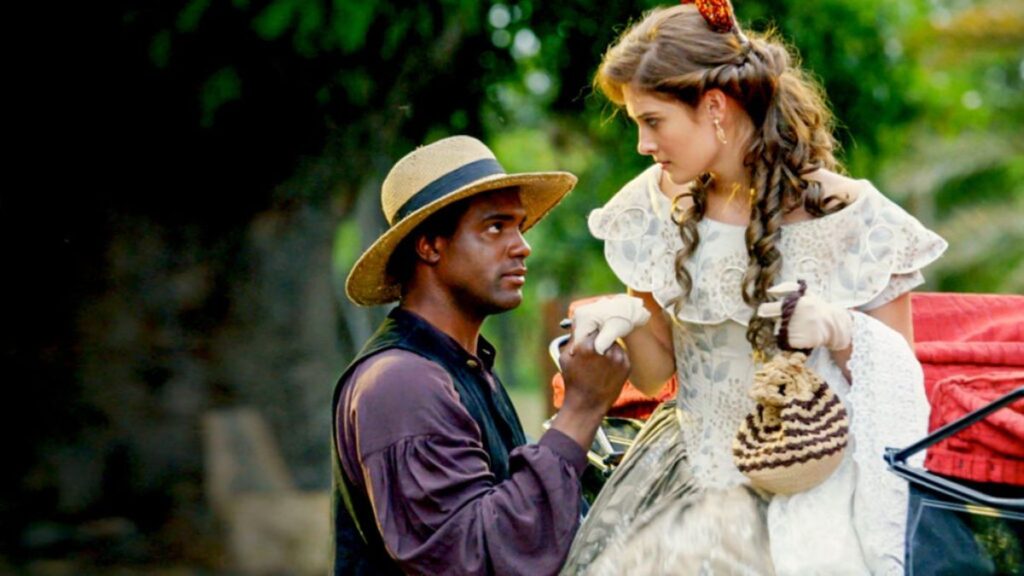Introduction to the concept of Esclava
The term “esclava” often stirs up a whirlwind of thoughts and emotions. It carries with it a heavy historical weight, rooted in concepts of oppression and submission. Yet today, its meaning has transformed in the context of modern society. As we navigate through our daily lives, the echoes of this word resonate differently for many individuals—especially women.
In an age where societal expectations are continually evolving, understanding esclava becomes essential to uncovering how these influences shape our perceptions and experiences. This exploration invites us to reflect on how beauty standards impact self-worth and identity while also challenging the traditional notions that have long held sway over personal freedom and expression.
Join me as we dive deeper into the complex layers surrounding esclava today, unraveling its implications on individuality, empowerment, and cultural perspectives that pave the way for redefining beauty standards in contemporary life.
Historical origins and evolution of the term
The term “esclava” has deep historical roots, originating from the Latin word “sclavus,” which referred to slaves in ancient societies. Over time, it morphed into various languages, reflecting the complexities of power dynamics and class structures.
Initially linked to servitude and oppression, “esclava” represented those marginalized by societal hierarchies. Its evolution mirrored changing attitudes toward freedom and autonomy. As societies evolved, so did its implications.
In contemporary contexts, while some still associate the term with subjugation, others have reclaimed it as a symbol of resilience. This duality showcases how language can transform over generations—reflecting both pain and empowerment within cultural narratives.
As we dive deeper into modern interpretations of “esclava,” it’s crucial to recognize its layered meanings shaped by history and social change. Understanding these origins provides insight into ongoing conversations about identity and power today.
Esclava in modern society: How it manifests and affects individuals
The concept of esclava in modern society often appears in various forms, from media portrayals to social interactions. Many individuals find themselves navigating a landscape where traditional roles are challenged yet still heavily influenced by historical notions.
Social media plays a significant role in this dynamic. It can perpetuate images that align with the esclava mindset, emphasizing unrealistic beauty standards and lifestyles. This constant barrage shapes how people view themselves and others.
Moreover, the pressure to conform can lead to feelings of inadequacy or self-doubt. Individuals may struggle between wanting acceptance and yearning for authenticity.
In personal relationships, the impact is equally profound. The desire to fit into societal molds often creates tension or unhealthy dynamics. Recognizing these patterns is crucial for fostering healthier connections based on mutual respect rather than outdated ideals.
Impact of societal expectations and beauty standards on women’s perception of Esclava
Societal expectations and beauty standards play a significant role in shaping women’s perceptions of the concept of esclava. These norms often dictate how women feel they should look, behave, and present themselves to the world.
Many women internalize these messages from an early age. They may believe that their worth is tied to their physical appearance or adherence to cultural ideals. This leads some to embrace the idea of esclava as synonymous with submission or compliance.
The pressure can manifest through social media platforms where curated images dominate feeds. Women might find themselves comparing their lives and bodies against unrealistic portrayals, reinforcing feelings of inadequacy.
This constant battle can result in a distorted self-image. Instead of celebrating individuality, many become trapped within a narrow definition of beauty influenced by external factors rather than personal values or beliefs.
Breaking free from the Esclava mindset: Empowerment and self-acceptance
Breaking free from the esclava mindset begins with self-awareness. Recognizing how societal pressures shape our thoughts can be liberating.
Empowerment comes from understanding that beauty is subjective. Each person embodies a unique essence, and embracing individuality is key. Instead of conforming to narrow definitions, celebrate personal strengths and qualities.
Practicing self-acceptance plays a pivotal role in this journey. It’s essential to silence the inner critic that often echoes society’s unrealistic standards. Surround yourself with supportive communities that uplift rather than judge.
Engaging in activities that nurture your passions also fosters confidence. Whether it’s art, sports, or volunteer work, these pursuits remind us of our worth beyond appearance.
Mindfulness practices can further aid this transformation by grounding thoughts and fostering gratitude for one’s body and mind. Prioritizing mental well-being opens pathways to authentic living without the constraints of the esclava narrative.
Cultural and diversity perspectives on Esclava
Cultural perspectives on the concept of esclava vary significantly across different societies. In some cultures, it embodies traditional roles and expectations placed upon women. These roles often emphasize submission and self-sacrifice, leading to a narrow definition of femininity.
Diversity plays a crucial role in shaping individual experiences with esclava. Women from various backgrounds navigate through distinct societal pressures that influence their sense of identity. For instance, Western ideals may prioritize independence, while other cultures might value communal harmony over personal ambition.
This complexity creates an interesting dynamic as women challenge the restrictions imposed by these cultural narratives. By embracing their unique identities, they redefine what being an esclava means within their own contexts. This shift fosters dialogue about empowerment and authenticity across diverse communities.
As conversations around beauty standards evolve, so do the interpretations of esclava in modern society. Each narrative adds depth to our understanding of individuality and strength among women worldwide.
Conclusion: Embracing individuality and redefining beauty standards
Embracing individuality and redefining beauty standards is essential in today’s world. The concept of esclava can often feel overwhelming, but it also presents an opportunity for growth and self-discovery. As we challenge societal norms, we open the door to a more authentic version of ourselves.
The journey toward self-acceptance begins with understanding our worth beyond external appearances. Each individual has unique qualities that deserve recognition and celebration. By shifting focus from conforming to rigid ideals to appreciating our diverse identities, we empower not only ourselves but those around us as well.
It’s time to redefine what beauty means in our lives. Let go of outdated notions tied to the idea of esclava and embrace a broader perspective that values authenticity over perfection. As we celebrate uniqueness, we inspire future generations to do the same—creating a culture where everyone feels valued just as they are.
By fostering self-love and acceptance, society can move away from harmful stereotypes associated with esclava. Together, let’s create an environment where every individual feels free to express their true selves without fear or judgment, paving the way for genuine connections based on respect and appreciation for diversity.







